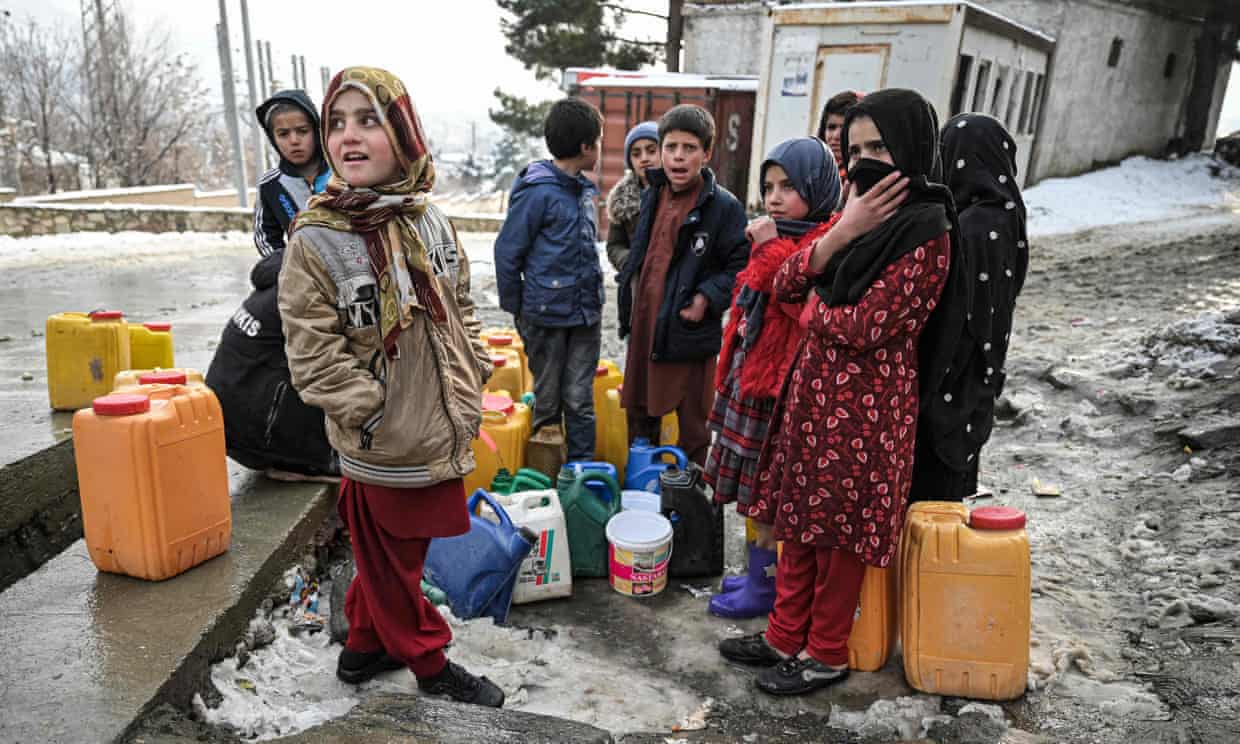Former defence, national security and foreign policy experts lay out five outcomes that the international community should be working towards to avert an irreversible humanitarian disaster.
When international forces left Afghanistan so abruptly over the summer, we knew the risks of humanitarian catastrophe. Sadly, we are now seeing the consequences. The speed with which humanitarian indicators are plummeting is dramatic, even compared with other serious global crises. The freezing of state assets and the cut in international funding for health and education risk tipping the country into famine: not seen before in Afghanistan’s 40 years of conflict. Economic collapse will cause death and suffering, and increase terrorism and migration.
The UK government has announced £286m of humanitarian assistance and supported the UN security council in the careful relaxation of some sanctions. UK citizens have once again responded generously to the Disaster Emergency Committee appeal.
But these measures are not enough to avert an irreversible humanitarian disaster. We believe the UK government needs to act in accordance with two fundamental principles: Afghan lives should not be used for political leverage; and economic and state collapse in Afghanistan is not in our own national interest.
So we urge the government to convene an urgent international conference, in partnership with the UN and key international partners. We should do so on the basis that the international community distinguish between two types of aid: money that can be withheld to try to leverage political concessions from the Taliban (such as large scale infrastructure projects – roads, dams and so on); and money to enable government institutions to deliver basic human services and to keep the economy from collapsing.
Given the weak economy, Afghans providing essential services have largely been paid from the aid budgets of development partners for the last 20 years. Governments – rightly – do not want to give any succour to the Taliban. Instead, money has been channelled into the humanitarian system. This is important, but cannot replace institutional service delivery to 40 million people. Humanitarian agencies are ready and able to pay medical staff, teachers and other civil servants delivering public services. But they need the money to do so – far more than has yet been delivered. And they need a clear political mandate from donors, not least the US.
The UK should therefore press for five practical outcomes:
-
The international community to meet the UN’s appeal for humanitarian funding and accelerate payment of money promised.
-
The preservation of state delivery systems, including salary payments for civil servants delivering essential public services.
-
The resumption of technical support to the central bank to prevent economic collapse and pursue the managed and limited release of the Afghan people’s foreign exchange reserves.
-
The reinstatement of the Afghan reconstruction trust fund, a trusted mechanism for structured and accountable disbursement of international donor development funds. Projects must be scrutinised and adjusted to ensure no direct benefit accrues to the Taliban.
-
The release of some of the frozen Afghan foreign reserves so that salaries of essential workers can be paid directly by third parties and key social services be maintained.
All of these are compatible with maintaining a policy of non-recognition of the Taliban regime. The UN secretary general has clearly stated: the time to act is now. Let us not fail the Afghan people again.
Valerie Amos former UN undersecretary-general for humanitarian affairs and secretary of state, Department for International Development
David Richards former chief of the defence staff
Peter Ricketts former national security adviser and permanent secretary, Foreign and Commonwealth Office
Mark Sedwill former national security adviser, cabinet secretary and ambassador to Kabul
Nicholas Kay former ambassador to Kabul
Mark Lowcock former UN under-secretary-general for humanitarian affairs and permanent secretary, Department for International Development
Tom Fletcher former ambassador and No 10 foreign policy adviser
Photo description / credit: Children in Kabul wait to fill jerry cans with water. ‘Afghan lives should not be used for political leverage.’ Photograph: Mohd Rasfan/AFP/Getty Images


